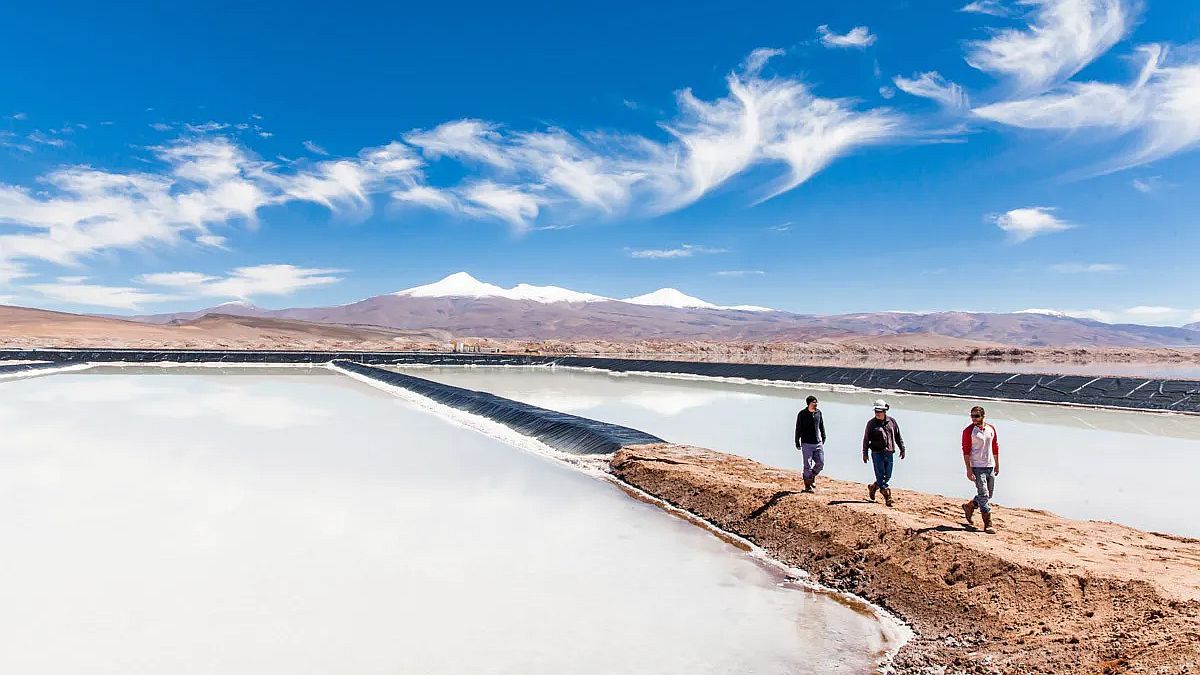Lithium carbonate and other lithium mineral production soared 128.2% year-on-year in June, which was its largest positive change since records began. This happened despite the fact that the general activity of non-metallic mining deepened its decline, as a consequence of the decreases in those inputs demanded by the construction sector.
According to the Mining Industrial Production Index (IPIM) of INDEC, the Extraction of non-metallic minerals and application rocks suffered a fall of 11.5% compared to June 2023, the highest since August 2020, when the economy was still immersed in the effects of the Covid-19 pandemic.
This contraction was mainly explained by a 24.4% drop in the extraction of rock or limestone, shell and calcareous stones or rocks for the production of lime and/or cementSignificant losses were also recorded in common construction sand and common clay.
In this context, lithium cushioned the collapse in this segment. In the sixth month of the year, there were 6,069 tons of lithium carbonatethe highest number since INDEC began the count in June 2023. In the same sense, the percentage variation was also the highest since October 2021, when the agency began the official statistics of this critical mineral, key in the framework of electromobility.
In line with the growth of this fundamental input for the production of electric batteries, Eramine Sudamérica SA will inaugurate the fourth lithium project in the country in Salta and the first in that province, with a production potential in a first stage of 24,000 tons of lithium carbonate equivalent (LCE) per year. The investment required to start up this project amounted to approximately US$800 million.
The other three projects in force in Argentina are the Phoenixwith more than 30 years of activity in the Salar del Hombre Muerto in Catamarca, which today operates Arcadium (formerly Livent merged with Allkem); Olaroz Salt Flat in Jujuy, which began production in 2016 and is also in the hands of Arcadium, because it belongs to the company Sales de Jujuy, a subsidiary of the Australian giant Allkem, and Olaroz rubber treeoperated by Minera EXAR since June 2023, a lithium consortium made up of the Canadian Lithium Argentina (formerly Lithium Americas), the Chinese Ganfeng Lithium and the state-owned Jujuy Energía y Minería Sociedad del Estado (JEMSE).
Despite the poor performance of non-metallic minerals, The IPIM had a year-on-year improvement of 3.3% in June and a monthly advance of 0.3%These increases were driven by the oil and gas production (of almost +7% year-on-year), and of the main metalliferous minerals, gold and the silver (+20% year-on-year).
In the first half of the year, the index grew by 8.2%Oil production increased by 8.4% and gas production by 5.2%. In parallel, non-metallic minerals showed an increase of 3%, while metalliferous minerals fell by 1.6% (because prior to June they had shown significant decreases).
Source: Ambito




